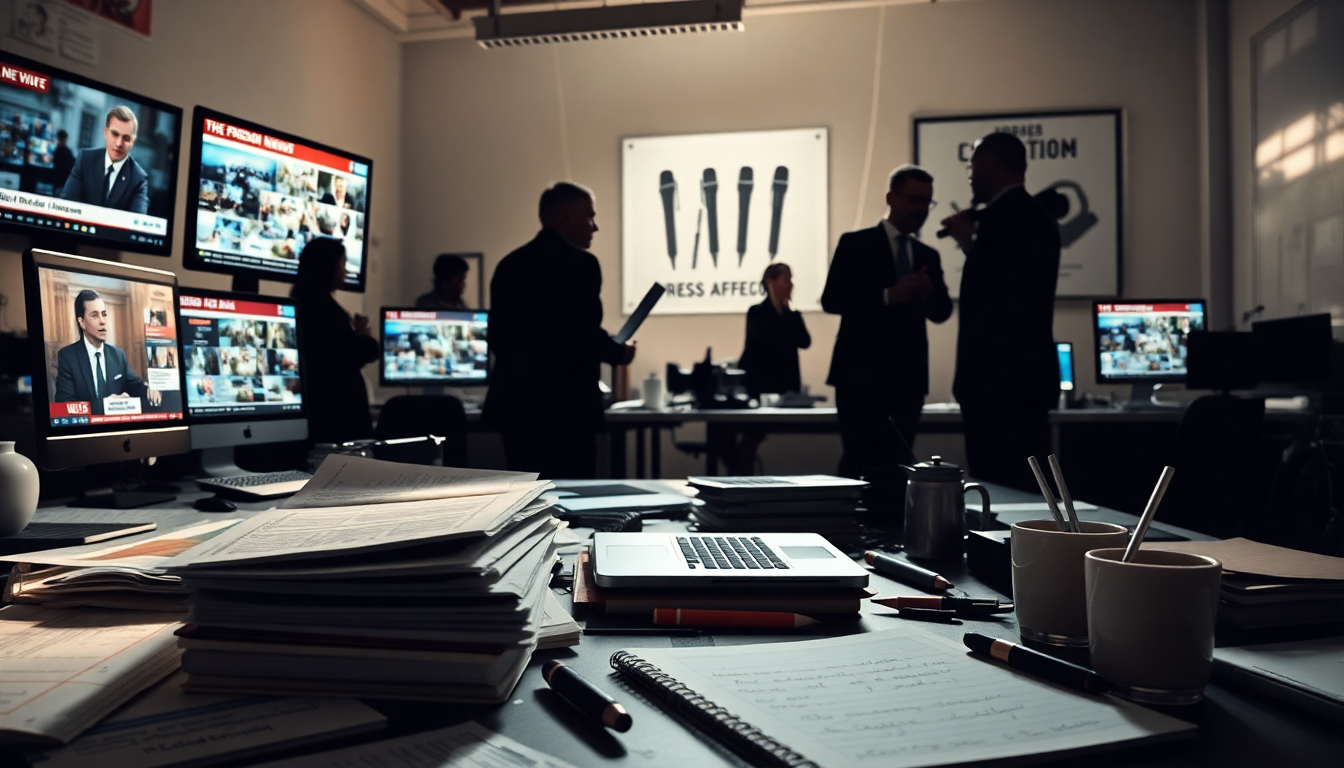Table of Contents
In a recent interview, former ABC reporter Terry Moran opened up about his decision to leave the network, a choice that was sparked by a fiery social media outburst aimed at President Trump and his advisor, Stephen Miller. This moment fits into a larger story involving Trump’s ongoing clashes with major news organizations, which he claims are biased against him.
But what does this tension mean for the role of the media in our democracy? And could Trump’s calls for regulatory action against news outlets change the landscape forever?
The backdrop of Trump’s media criticism
President Trump has always been outspoken about his dissatisfaction with the media, particularly singling out NBC and ABC News.
After a particularly heated late-night rant, he asserted that these networks deliver overwhelmingly negative coverage, stating that a staggering 97% of their reporting on him is unfavorable. While the origin of this specific figure remains a mystery, a recent report from the conservative Media Research Center noted that around 92% of coverage during his first 100 days in office was indeed negative.
Isn’t it fascinating how numbers can shape narratives?
In true Trump fashion, he argued that if the media is largely negative, it essentially aligns these outlets with the Democratic Party. He went so far as to suggest that this bias could lead to serious consequences, including the potential revocation of their broadcasting licenses.
This bold claim not only reveals his frustration but also raises critical questions about the implications of such threats on journalistic integrity and freedom. How far can a president go in challenging the press?
Legal and ethical considerations
Trump’s suggestion to revoke media licenses opens up a can of worms regarding the legal framework surrounding broadcast journalism.
It’s important to note that national networks like ABC and NBC don’t hold FCC licenses directly; rather, they provide content to local affiliates that are licensed by the FCC. Any attempt to yank those licenses based on perceived bias would likely clash with First Amendment protections, which safeguard freedom of speech and the press.
Isn’t it reassuring to know that the law stands firm in protecting journalistic autonomy?
Historically, efforts to penalize media outlets for biased reporting have faced legal challenges and have often been deemed unconstitutional. This legal history highlights the resilience of journalistic freedom, even when faced with political pressure. Moreover, Trump’s history with the media, including a significant defamation settlement with ABC, adds another layer of complexity to his relationship with journalists. Can we trust a leader who has had such contentious interactions with the press?
Impact on public perception and journalism
The ongoing dialogue about media bias and licensing raises significant concerns about how the public views journalism. Trump’s frequent labeling of mainstream media as “fake news” and his accusations of bias fuel skepticism among his supporters, creating a landscape where many gravitate toward outlets that echo their beliefs. This shift can undermine the essential role of journalism in delivering balanced and factual information. Isn’t it troubling to think that our news sources might become echo chambers instead of informative platforms?
Additionally, the tension between political figures and the media can lead journalists to feel pressured to self-censor or modify their reporting to avoid backlash. This not only threatens the quality of news but also jeopardizes the democratic principle of accountability, which relies on a free and independent press to keep the public informed and hold power accountable. How can we ensure that journalism remains robust in such a climate?
Future implications for media and politics
Looking to the future, the conversation around media bias and regulatory threats is bound to evolve. As political figures like Trump use their platforms to challenge media institutions, it’s crucial for journalists to remain committed to ethical reporting standards. Maintaining transparency and objectivity will be essential in navigating this contentious landscape. Are we ready to hold our journalists to these high standards?
Moreover, the ramifications of Trump’s statements may prompt media organizations to advocate more vigorously for press freedoms and engage with their audiences to rebuild trust. As the relationship between politics and the press continues to shift, the media must adapt to ensure that it fulfills its vital role in democracy—providing accurate information and fostering informed public discourse. How can we support journalism that stands firm against political pressure?





